The consumer trend towards better-for-you products resulted in a significant increase in still drinks’ share of the market from 2001 to 2006. However, the trend started to re-balance in 2007 as carbonates grew both their value and volume market share. This was largely driven by the growth of premium priced functional drinks and a host of new developments in cola, which held on to its market-leading 21% value share according to Britvic’s latest Soft Drinks Report.
Britvic sales director Andrew Richards says: “Consumers view the cola category as a permanent part of their soft drinks repertoire, but in previous years there has been little innovation to drive excitement and interest in the category. However, with considerable innovation focused on the cola sector in recent months and the launch of new natural products, all this is set to change.”
Regular colas were the big success stories of 2007 as consumers took a broader and more balanced view of health and well-being. And an increasing number of shoppers are turning their backs on artificial sweeteners in favour of natural sugars as a result. Red Bull exploded into the cola category in April with the launch of Red Bull Simply Cola. The 100% natural drink aims to fit with the trend towards more natural, traceable products and indeed the brand has had a roaring start, already selling more than two million cans since its launch.
“This clearly illustrates that there is a consumer desire for natural cola,” says Red Bull trade channel marketing manager Caroline Jacomb. “This trend will continue to make a positive impact on the carbonates category in the future as it meets the needs of today’s increasingly health- conscious consumer,” she adds.
Natural sugar Pepsi Raw, which was launched into the on-trade in 2007, is also set to be rolled out to the take-home channel in 2009, and Britvic’s Richards believes that this trend is likely to continue with other players in the market looking to more natural formulations to capitalise on the naturalness trend. Pepsi’s 4% brand growth last year was driven by regular Pepsi, whose 9% growth brought sales to £83m – close behind Pepsi Max whose sales grew 2% to £85m.
Coke Zero, the most successful new food and beverage launch of the past three years, according to AC Nielsen, continued to sell at a record rate last year. The brand has grown by 49% since launch, according to CCE, and is currently worth £60m.
Coca-Cola Enterprises (CCE) trade communications manager Kenny Chisholm explains: “With consumer tastes changing, we are seeing more demand for wellness products and affordable luxuries, along with the need for products that are suitable for time-poor shoppers.”
Meanwhile, Virgin Cola boosted its appeal among teenage music lovers by forging a promotional tie-up with Channel 4 music programme T-Mobile Transmission. It is the first major marketing initiative for the soft drinks brand since Silver Spring secured the licence to produce and market the product from Sir Richard Branson’s Virgin Group in August last year. The brand is being marketed as a high-quality product, but without the premium price tag.
Flavoured Favourites
One sub category that hasn’t managed to turn things around so far is the flavoured carbonates sector and its decline has continued. Sales value fell by 2% to £438m, according to the Britvic Soft Drinks Report which also named lemon and lime drinks as the brightest spot. 7UP scored a 14% rise in sales value to £28m and Sprite added 1% to £57m.
Like the cola category, fruit carbonates are being influenced by consumer demand for healthier and more natural products. Following the hugely successful launch of Coke Zero in 2006, Fanta, Sprite, Dr Pepper and Lilt have all added zero variants.
“Clear labelling has also become an important factor in consumers’ buying decisions,” points out Vimto marketing manager Emma Hunt. Vimto has introduced a range of no added sugar products and introduced GDA information across its carbonates portfolio to help buyers make more informed purchasing decisions. “There is also something of a move towards more traditional flavours,” adds CCE’s Chisholm.
CCE also recently launched a new range of Schweppes Classics, with flavours including ginger beer and cloudy lemonade.
“These traditional soft drink flavours are showing strong growth in the UK, with cloudy lemonade remaining the favourite and ginger beer showing significant growth of 17%,” he says.
The industry is also confident that recent government recommendations on complete abstinence from alcohol during pregnancy, and a campaign to educate consumers on alcohol units, will help fuel sales of fruit-flavoured carbonated soft drinks. Shloer has been quick to catch on to this and has been promoting its no-alcohol content to pregnant women in a campaign targeting expectant mothers.
Shloer managing director Mike Coppard says: “Shloer is a premium drink free from preservatives and artificial sweeteners, flavours and colours, making it an ideal treat for pregnant women.”
Recent activity has included sampling with the National Childbirth Trust and providing hints and tips on how to maintain “sparkle” throughout pregnancy on www.Shloer.com. Coppard adds that the fact its most popular flavours are white grape and red grape indicates that some consumers view it as an alternative to wine. Appletiser brand manager Andy Thompson goes so far as to say consumers of its brand view it as a “great alternative” to champagne and sparkling wine.
“Its stylish bottle design gives it a point of difference against the competition and its still cousins,” he says. “It’s also the ideal accompaniment to food.”
Rubicon is also enjoying success with its new sparkling juice range. The drinks, which contain real juice, appeal to the more discerning consumer, says Rubicon head of marketing Barbara Down.
Britvic sales director Andrew Richards says: “Consumers view the cola category as a permanent part of their soft drinks repertoire, but in previous years there has been little innovation to drive excitement and interest in the category. However, with considerable innovation focused on the cola sector in recent months and the launch of new natural products, all this is set to change.”
Regular colas were the big success stories of 2007 as consumers took a broader and more balanced view of health and well-being. And an increasing number of shoppers are turning their backs on artificial sweeteners in favour of natural sugars as a result. Red Bull exploded into the cola category in April with the launch of Red Bull Simply Cola. The 100% natural drink aims to fit with the trend towards more natural, traceable products and indeed the brand has had a roaring start, already selling more than two million cans since its launch.
“This clearly illustrates that there is a consumer desire for natural cola,” says Red Bull trade channel marketing manager Caroline Jacomb. “This trend will continue to make a positive impact on the carbonates category in the future as it meets the needs of today’s increasingly health- conscious consumer,” she adds.
Natural sugar Pepsi Raw, which was launched into the on-trade in 2007, is also set to be rolled out to the take-home channel in 2009, and Britvic’s Richards believes that this trend is likely to continue with other players in the market looking to more natural formulations to capitalise on the naturalness trend. Pepsi’s 4% brand growth last year was driven by regular Pepsi, whose 9% growth brought sales to £83m – close behind Pepsi Max whose sales grew 2% to £85m.
Coke Zero, the most successful new food and beverage launch of the past three years, according to AC Nielsen, continued to sell at a record rate last year. The brand has grown by 49% since launch, according to CCE, and is currently worth £60m.
Coca-Cola Enterprises (CCE) trade communications manager Kenny Chisholm explains: “With consumer tastes changing, we are seeing more demand for wellness products and affordable luxuries, along with the need for products that are suitable for time-poor shoppers.”
Meanwhile, Virgin Cola boosted its appeal among teenage music lovers by forging a promotional tie-up with Channel 4 music programme T-Mobile Transmission. It is the first major marketing initiative for the soft drinks brand since Silver Spring secured the licence to produce and market the product from Sir Richard Branson’s Virgin Group in August last year. The brand is being marketed as a high-quality product, but without the premium price tag.
Flavoured Favourites
One sub category that hasn’t managed to turn things around so far is the flavoured carbonates sector and its decline has continued. Sales value fell by 2% to £438m, according to the Britvic Soft Drinks Report which also named lemon and lime drinks as the brightest spot. 7UP scored a 14% rise in sales value to £28m and Sprite added 1% to £57m.
Like the cola category, fruit carbonates are being influenced by consumer demand for healthier and more natural products. Following the hugely successful launch of Coke Zero in 2006, Fanta, Sprite, Dr Pepper and Lilt have all added zero variants.
“Clear labelling has also become an important factor in consumers’ buying decisions,” points out Vimto marketing manager Emma Hunt. Vimto has introduced a range of no added sugar products and introduced GDA information across its carbonates portfolio to help buyers make more informed purchasing decisions. “There is also something of a move towards more traditional flavours,” adds CCE’s Chisholm.
CCE also recently launched a new range of Schweppes Classics, with flavours including ginger beer and cloudy lemonade.
“These traditional soft drink flavours are showing strong growth in the UK, with cloudy lemonade remaining the favourite and ginger beer showing significant growth of 17%,” he says.
The industry is also confident that recent government recommendations on complete abstinence from alcohol during pregnancy, and a campaign to educate consumers on alcohol units, will help fuel sales of fruit-flavoured carbonated soft drinks. Shloer has been quick to catch on to this and has been promoting its no-alcohol content to pregnant women in a campaign targeting expectant mothers.
Shloer managing director Mike Coppard says: “Shloer is a premium drink free from preservatives and artificial sweeteners, flavours and colours, making it an ideal treat for pregnant women.”
Recent activity has included sampling with the National Childbirth Trust and providing hints and tips on how to maintain “sparkle” throughout pregnancy on www.Shloer.com. Coppard adds that the fact its most popular flavours are white grape and red grape indicates that some consumers view it as an alternative to wine. Appletiser brand manager Andy Thompson goes so far as to say consumers of its brand view it as a “great alternative” to champagne and sparkling wine.
“Its stylish bottle design gives it a point of difference against the competition and its still cousins,” he says. “It’s also the ideal accompaniment to food.”
Rubicon is also enjoying success with its new sparkling juice range. The drinks, which contain real juice, appeal to the more discerning consumer, says Rubicon head of marketing Barbara Down.



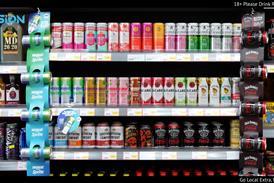
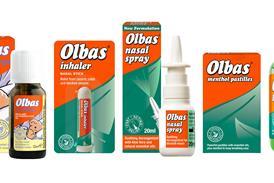



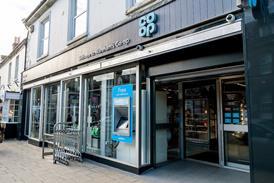
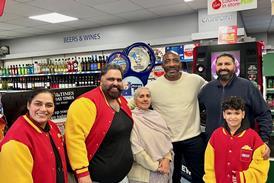
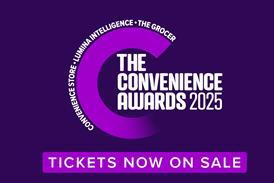
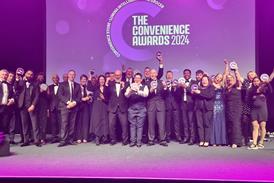
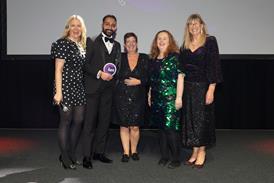




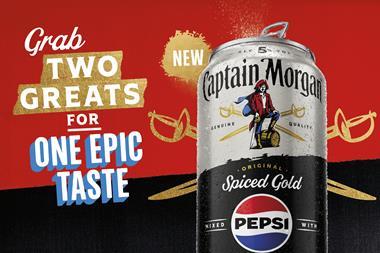
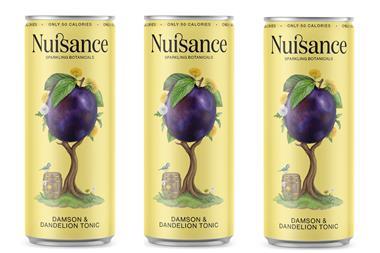

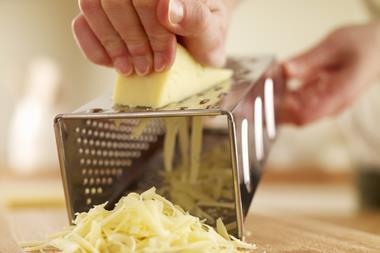
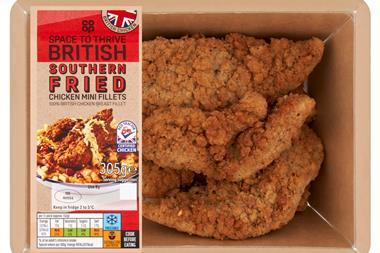

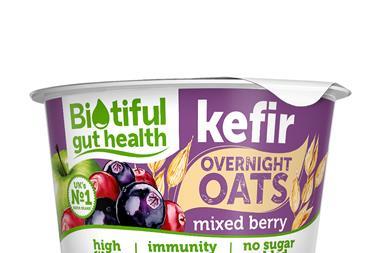
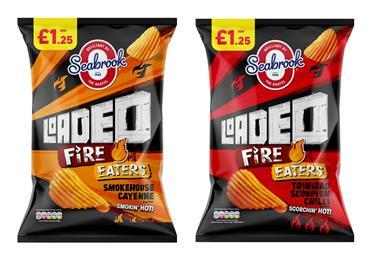
No comments yet